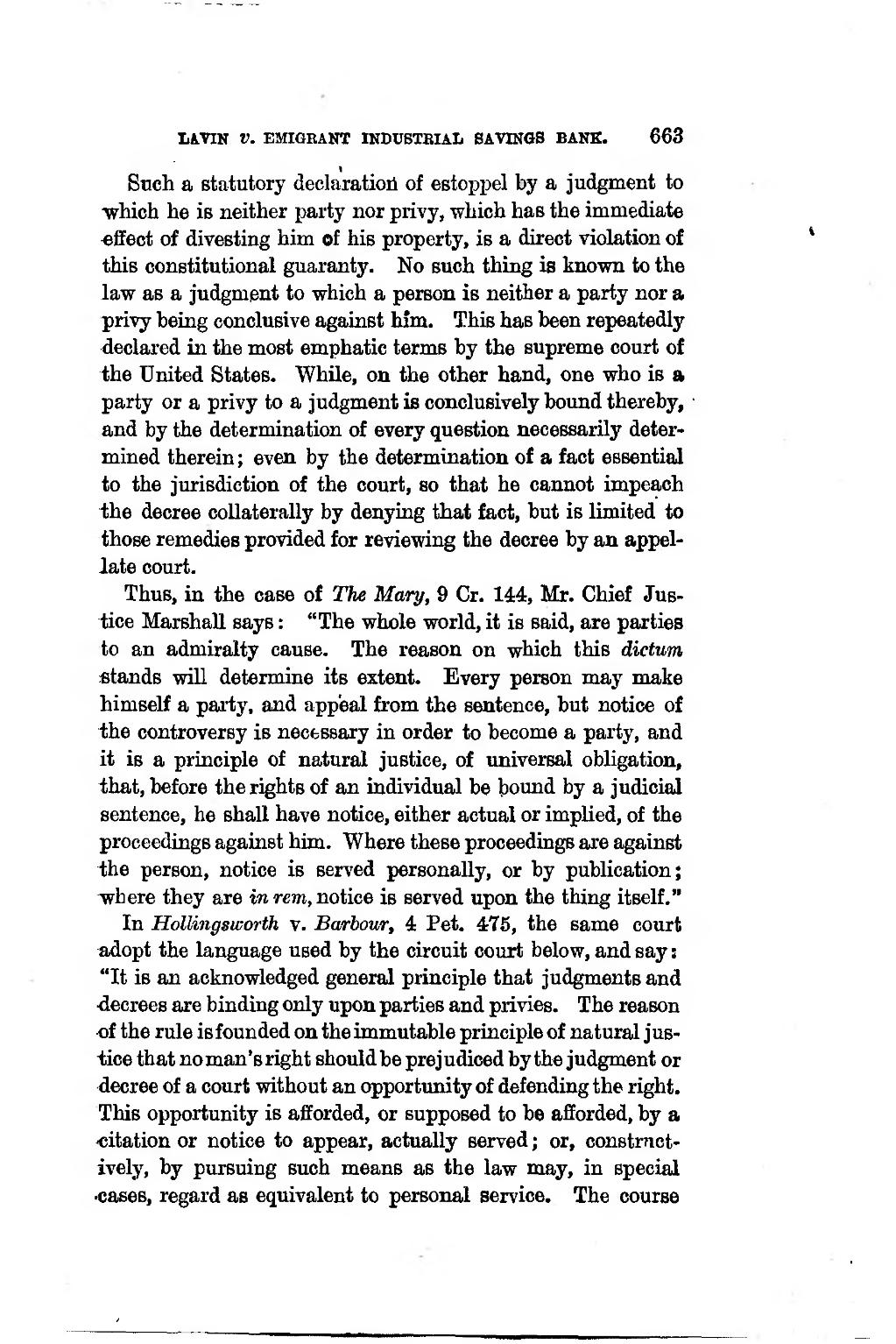LITIN V. EMIGEANT INDUBTBIAL SAVINGS BANK. 663 �Such a statutory declaratioù of estoppel by a judgment to ■which he is neither party nor privy, which bas the immediate «flfect of divesting bim of his property, is a direct violation of this constitutional guaranty. No sucb tbing is known to the law as a judgment to which a person is neither a party nor a privy being eonclusive against hîm. This bas been repeatedly declared in the most empbatic terms by the supreme court of the United States. Wbile, on the otber hand, one who is a party or a privy to a judgment is conclusively bound tbereby, and by the determination of every question necessarily deter- mined tberein ; even by the determination of a f act essential to the jurisdiction of the court, so that he cannot impeacb the decree collaterally by denying that fact, bat is limited to tbose remedies provided for reviewing the decree by an appel- Jate court. �Tbus, in the case of The Mary, 9 Cr. 144, Mr. Cbief Jus- tice Marshall says : "Tbe 'whole world, it is said, are parties to an admiralty cause. The reason on which tbis dictum etands wUl determine its extent. Every person may make bimself a party, and app'eal from the sentence, but notice of the controversy is necessary in order to become a party, and it is a principle of natural justice, of universal obligation, ihat, before the rights of an individual be bound by a judicial sentence, he sball bave notice, eitber actual or implied, of the proceedings against him. where these proceedings are against ihe person, notice is served personally, or by publication; vphere tbey are in rem, notice is served upon the thing itself." �In Hollingsworth v. Barbour, 4 Pet. 476, the same court adopt the language used by the circuit court below, and say : "It is an acknowledged general principle that judgments and ■decrees are binding only upon parties and privies. The reason of the rule isfounded on the immutable principle of natural jus- tice that noman'sright shouldbe prejudiced by the judgment or decree of a court witbout an opportunity of defending the right. This opportunity is afforded, or supposed to be afforded, by a ■citation or notice to appear, actually served ; or, constnict- ively, by pursuing such means as the law may, in special «ases, regard as equivalent to personal service. The course ��� �
Page:Federal Reporter, 1st Series, Volume 1.djvu/671
This page needs to be proofread.
